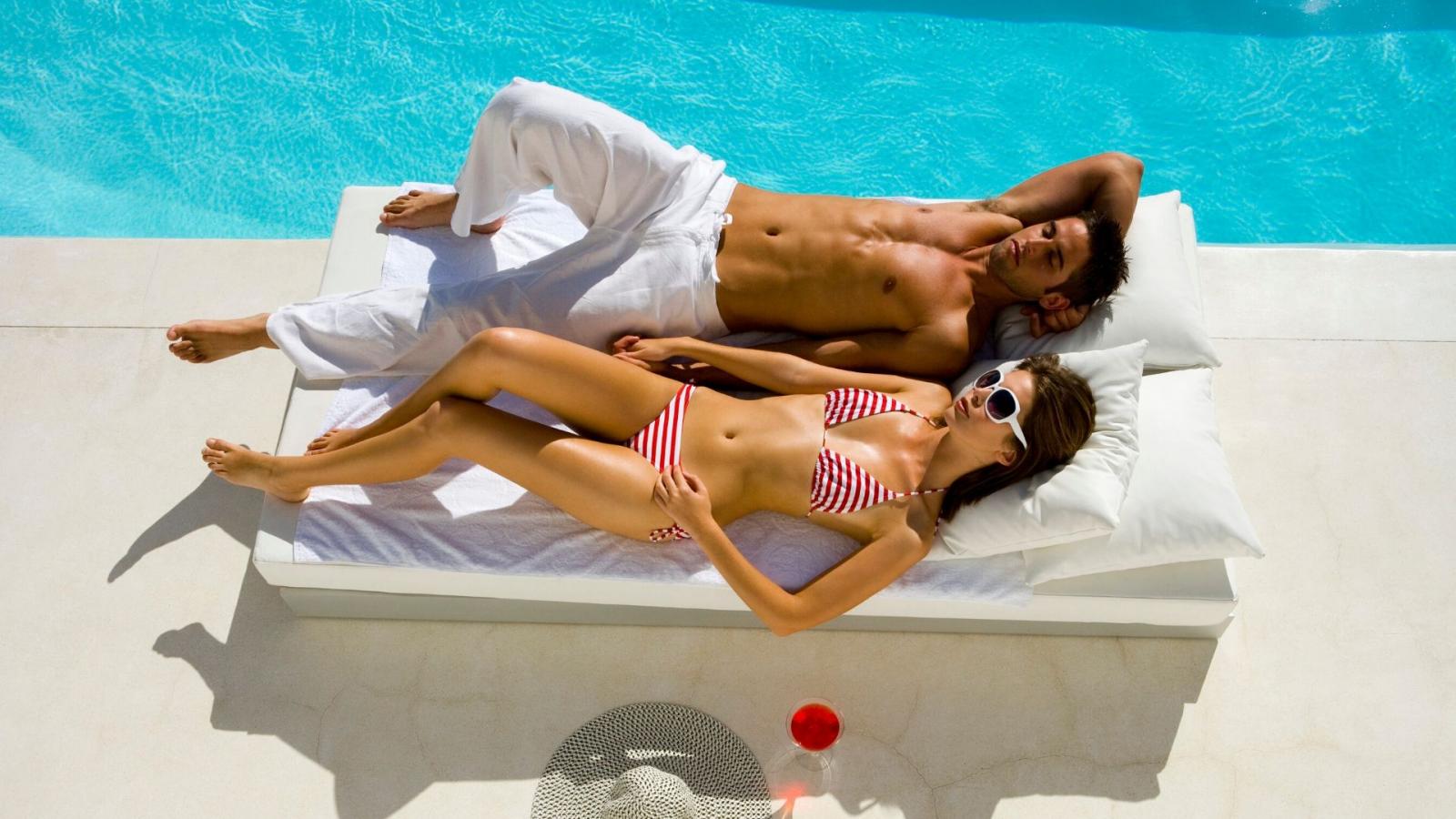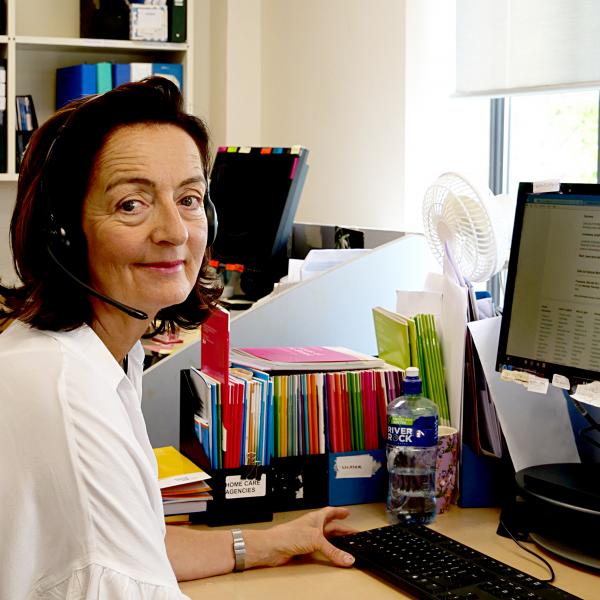Skin cancer myths

"Tanned skin a sign that I'm healthy!"
Not true! Tanned skin is damaged skin. Getting skin damage increases your chances of getting skin cancer in later life.
Tanned skin is a sign that your skin has been damaged and is trying to protect itself from further UV damage. While much of this damage will be repaired, some of it remains and builds up over the years with every tan or sunburn you get.
It is this built-up damage that can lead to skin cancer later in life.
"Sunbeds give a good base tan before holidays"
A total myth! Research tells us that if you use a sunbed, you increase your risk of melanoma skin cancer (the most serious form of skin cancer) by 15%.
If you use a sunbed before the age of 35 years your risk is increased by 75%.
Sunbed tans give very little protection against further skin damage from natural UV exposure. It is equal to sunscreen with SPF 2-4, and won’t keep you safe. Using anything less than SPF 30 will not give you the protection you need.
Even if your skin does not burn after using a sunbed your risk of melanoma is greater.
"Sunbeds are good for skin problems"
Please please please do NOT use a sunbed to help clear acne! You could get more than you bargained for. Sunbed use is strongly linked to melanoma skin cancer.
A much better way to deal with acne is to talk to your doctor or your dermatologist about it and get the real help you need.
Using a sunbed now could just cause you more problems later in life.
"Using sunbeds is safer than tanning."
Not true! Using sunbeds is not a safe way to get a tan.
They expose your skin to large amounts of UV rays that age your skin and increase your risk of skin cancer. Getting a tan from a sunbed is not safer than a tan from being outdoors, even if done gradually.
The level of UV exposure from sunbeds can be up to 15 times higher than the midday Mediterranean sun. Because of this your risk of melanoma skin cancer is greater.
"I need to sunbathe to get vitamin D!"
Totally false! While sun exposure is the best natural source of vitamin D, you can also get vitamin D from your diet - from things like oily fish, egg yolks, beefs, butter - and by taking supplements.
You don’t need to spend hours in the sun to produce enough vitamin D. Extra time outdoors doesn’t equal more vitamin D, but it does increase skin cancer risk.
The World Health Organisation says that it is enough to get 5 to 15 minutes of casual sun exposure to hands, face and arms two to three times a week during the summer months. So really, you’re getting enough sun exposure as you go about your daily life!
Never let your skin redden or burn to get vitamin D and take extra care if you have fair skin because you are more at risk of sunburn.
"I don't need sunscreen - my skin never burns!"
All skin needs protection! In general there are 6 different skin types. They range from white skin that burns and never tans to black skin.
In Ireland 3 in every 4 people have skin types 1 or 2, which means their skin burns and does not tan or else it burns before it tans. This greatly increases the risk of skin cancer for Irish people!
However, even if your skin type is brown or black, which makes it less likely to burn, it can still receive enough UV damage to increase skin cancer risk.
So play it safe and protect your skin no matter what its type.
"I heard that the chemicals in sunscreen cause cancer"
We’re often asked if chemicals in sunscreens are harmful, and if they increase your risk of developing cancer. Sunscreen has been used by a large portion of the population for a number of decades and there is no evidence that users come to harm. The research on the chemicals in sunscreen (oxybenzone, retinyl palmitate and parabens) does not show that they cause cancer. None of these chemicals has been classified as a cancer-causing substance by any major scientific organisation.
A few studies have suggested that parabens (preservatives used in many cosmetic products, including some sunscreens) act like estrogen in the body, which can speed up the growth of breast cancer tumours. We need more research to understand this association better.
Skin cancer is the UK and Ireland’s most common cancer with a well-recognised link between excess sun exposure and skin cancer. Being safe in the sun is still the best way to reduce your risk of developing skin cancer. Protect yourself when the sun is at its strongest, cover your skin with clothing, wear a hat and sunglasses and use a sunscreen with an SPF 30 or higher.
"A tan on a child is healthy"
No, it's not! While skin cancer is rare in children, much of the UV damage that leads to it takes place in the early years of life.
Getting sunburnt in childhood or adolescence can increase the risk of melanoma - the most serious form of skin cancer - in later life.
Tanned skin is damaged skin. The tan a child gets may fade but the damage remains - and can lead to skin cancer later in life. In fact, people get most of their sun exposure before the age of 18.
Parents also need to consider how to protect their children when they are in someone else’s care. If your child is going to camp, playschool or any other location, please make sure you make arrangements to ensure they are safe in the sun!
"Irish weather doesn't cause skin damage"
Don't believe a word of this! Here in Ireland we love complaining about the weather but our skin can be damaged even on cloudy days.
If the sky isn’t clear or the sun isn’t splitting the rocks, many people seem to think that UV rays are not something we need to worry about.
Not true! The Irish Cancer Society conducted a study which found that Ultraviolet (UV) levels across Ireland were high enough to cause skin damage on almost 90% of the days between April and September! So don’t let the Irish weather fool you.
"Only women who sunbathe all the time get skin cancer"
This is a big fat myth! Figures show that in 2013, almost 6,000 men were diagnosed with skin cancer compared to just under 5,000 women.
Skin cancer represents 29% of all cancers in women and 31% of all cancer cases in men, so it’s pretty clear it is not a female-only issue. By 2040 it is estimated that there will be 13,000 females diagnosed and over 20,000 males.
The SunSmart Code
We all need to be SunSmart in order to reduce our risk of skin cancer. The damage starts the minute we are exposed to UV rays.
So, in order to be smart in the sun you should:
- Cover up when there’s no shade around.
- Wear loose clothing and a cool, wide-brimmed hat
- Seek shade! It is really important to do this from 11-3pm when UV levels are at their strongest.
- Wear sunglasses. Whether you are young or old make sure to get sunglasses that give UV protection.
- Use sunscreen with SPF of 30 and UVA protection. Apply sunscreen 20 minutes before going out in the sun and reapply every two hours!
- More information about the SunSmart Code.

If you are concerned about skin cancer or have any questions at all, speak to a cancer nurse by visiting one of our Daffodil Centres or by contacting a cancer nurse on Freephone 1800 200 700 or by email supportline@irishcancer.ie
For more information
Phone
1800 200 700



